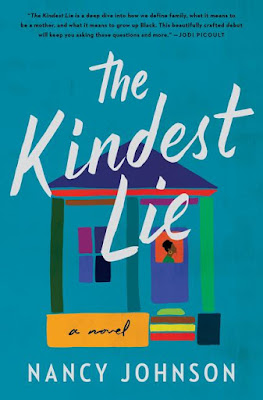 His list of television credits (creating, writing, and showrunning) spans Miami Vice to Bosch. Pyne has worked as a screen printer, a sportswriter, an ad man, and a cartoonist and has taught screenwriting at the UCLA School of Theater, Film and Television for more than two decades.
His list of television credits (creating, writing, and showrunning) spans Miami Vice to Bosch. Pyne has worked as a screen printer, a sportswriter, an ad man, and a cartoonist and has taught screenwriting at the UCLA School of Theater, Film and Television for more than two decades.
His new novel is Water Memory.
My Q&A with the author:
How much work does your title do to take readers into the story?Visit Daniel Pyne's website.
For some reason, I’ve always struggled with titles if they don’t come to me right away. I created a TV show about lawyers that was called The Antagonists, possibly one of the worst series titles ever, despite being incredibly accurate.
Calling my new book Water Memory is a bit of a misdirection; yes, it’s a story about memory; the main character is suffering serial concussion syndrome and worrisome memory loss. But it’s also a thriller, which is probably why the publisher added ‘A Thriller’ on the book cover.
Thematically, however, water memory refers to a folk belief that water -- which is ancient and immutable -- holds in it the memory of everything it’s touched, which means everything that’s ever happened, and everyone who has ever existed. And because the story takes place mostly on the ocean that idea, that memory is eternal and defines us, continually resonates throughout the novel.
What's in a name?
My protagonist is a private sector black ops specialist, and I named her Aubrey Sentro because it is an unusual and slightly gender-neutral name, both of which prepare the reader for who and what she is revealed to be over the course of her journey. There’s a hint of Texas in it, which is where she’s from; a measure of directness and menace, which are fundamental to her character. It’s not a soft name, or readily accessible. But the music of it is lyrical, almost old school romantic. And that’s important too, because those are the qualities that sustain her.
How surprised would your teenage reader self be by your new novel?
I don’t think I’ve changed all that much as a writer since I was starting out. I hope I’ve become a whole lot better at it. I loved the literary classics growing up, but also spy novels and thrillers, le Carré and Highsmith and Chandler. What might surprise the teenage me is the way I strive to integrate those both those strong influences in my work, for better or worse.
Do you find it harder to write beginnings or endings? Which do you change more?
Beginnings are hardest and tend to change the most. I am constantly going back and rewriting, adjusting, sometimes restructuring the beginnings of books and screenplays as I get deeper and deeper into the story. The ending is always in some way defined by where I start, even if I don’t know what that ending is when Istart. For me, endings are the inevitable sum of all that has come before them. Of course, getting the end exactly right takes quite a bit of rewriting, too.
Do you see much of yourself in your characters? Do they have any connection to your personality, or are they a world apart?
I write people who I imagine I might be, given different circumstances. They’re often very different from me, a collection of emotions, memories, experiences and capabilities that I may not have—but if I did have them, the question becomes what decisions would this new me make given the obstacles ahead? I do tend to like to write about ordinary people in extraordinary circumstances. Even with a character like Aubrey Sentro, who has specialized training and a mindset that isn’t average at all, I wanted her fears, her failings, her emotions and her relationships ground her. She doesn’t have superpowers. She bears the scars of what she’s been through; she’s not invincible. And the challenges she confronts in the course of Water Memory will leave their lasting mark as well.
What non-literary inspirations have influenced your writing?
Current events—news and cultural—are never far from my mind when I’m writing. But music and painting have a huge influence on my work.
Music, because the flow of prose, for me, has a rhythm, and a melody; the words are like notes in a composition, and my struggle is often to find just the right key. Thrillers are particularly dependent on pace and timing. Just like a great song or composition, you want to carry the reader, then offer up surprises, break the rhythm, slow down or speed up. I sometimes listen to music when I write and will choose an appropriate genre for what I’m working on.
My father was a painter and sculptor, so I have a very raw and, well, primal love of visual art. While I didn’t quite inherit his talent, I find that my writing tends to be very cinematic. I’m always aware of the setting, the composition, of the way that description paints a picture in the mind of the reader. Sometimes you want it to be extremely precise, like a photorealist. Other times you want to offer up something more abstract that the reader’s imagination can fill out and complete.
--Marshal Zeringue



























